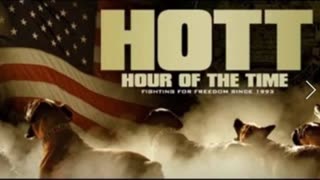Manly P. Hall's Lecture on the Secrets of the 33rd Degree of Freemasonry
Manly Palmer Hall, an iconic figure in the world of esoteric teachings, was born in Peterborough, Ontario, Canada on March 18, 1901. His journey to becoming a keystone of spiritual and metaphysical wisdom began with early adversities. The premature demise of his father, William S. Hall, a practicing dentist, and the challenges faced by his mother, Louise Palmer Hall, a chiropractor, led to the family's migration to the United States.
Though his formal education ceased at grammar school, Hall's innate drive for enlightenment propelled him into the depths of arcane knowledge. His unyielding dedication bore fruit in 1928 with the release of "The Secret Teachings of All Ages," an expansive exploration into the mysteries of secretive societies, shedding light on arcane rituals, symbols, and profound philosophies.
Taking his mission a step further, 1934 saw the birth of the Philosophical Research Society (PRS). Under Hall's founding vision and consistent leadership, PRS emerged as a beacon for those seeking to intertwine the studies of religions, mysticism, and metaphysics.
Hall's intellectual outreach was staggering. Over 8,000 lectures worldwide and an arsenal of over 150 publications, including seminal pieces like "The Lost Keys of Freemasonry" and "The Secret Destiny of America," stand as testaments to his monumental contributions.
An intriguing facet of his journey involves his relationship with Freemasonry. Despite his early and comprehensive writings on the topic, it was only in 1954 that he formally donned the Mason's mantle, rapidly ascending to the revered 33° Scottish Rite.
Though his death in 1990 is officially ascribed to natural causes, murmurings of speculative circumstances persist. Yet, the essence of his legacy remains untouched. Today, PRS stands as the guardian of his invaluable collection of esoteric texts, embodying his ceaseless dedication to spiritual exploration.
However, like all giants in their field, Hall faced his share of detractors. A significant portion of the academic sphere expressed reservations about the veracity of his work. This invariably led to fervent debates, as scholars juxtaposed his seemingly unverified claims against undeniable facts, a juxtaposition made even more complex by the inherently esoteric nature of his subjects.
While Manly P. Hall's work was widely respected in many circles, it did receive criticism from various quarters, especially by those who held contrasting viewpoints on esoteric and mystical subjects. Here are a few of the more prominent detractors or individuals who expressed reservations or critiques on some aspects of his teachings:
Dr. John Warwick Montgomery: A renowned Christian apologist, Montgomery was critical of esoteric writers, including Hall, for what he perceived as factual inaccuracies and an overemphasis on mysticism at the expense of empirical evidence.
Paul Foster Case: The founder of the Builders of the Adytum, an organization focused on Tarot and Qabalah, had differing views on some esoteric teachings compared to Hall. This naturally led to differences in interpretation and critique.
Traditional Academicians: While not always naming Hall directly, many historians and scholars rooted in empirical methodologies often took issue with Hall's more speculative approach, feeling that he sometimes strayed too far from verifiable fact.
Certain Masonic Figures: Given that Hall wrote about Freemasonry extensively before actually joining the Masons in 1954, some within the Masonic community questioned the authenticity of his insights prior to his formal initiation.
In the final analysis, Manly P. Hall's undying quest for esoteric and spiritual wisdom has indelibly marked the annals of metaphysical discourse. And while pockets of his teachings remain under the lens of scrutiny, his overarching stature as a colossus in the world of esoteric wisdom remains unchallenged.
-
 5:57:34
5:57:34
Deus Meum Que Jus
2 days agoWilliam Cooper - HOTT - Scarlet & The Beast Series - 9.94 - 10.94
246 -
 43:19
43:19
Game On!
1 hour agoJJ Redick land Laker's job, Patriots pay their young RB, and Dave Portnoy fed up with his employees
2.19K1 -
 16:37
16:37
Scammer Payback
1 day agoHere's the Scammer's Location 👉 (28°34'05.1"N 77°24'00.9"E)
51.6K34 -

Battleground with Sean Parnell
6 hours agoDeep State Cover Up w/ Tony Shaffer
4.08K6 -
 2:01:31
2:01:31
Revenge of the Cis
3 hours agoEpisode 1341 White Girl Summer
15.2K4 -
 LIVE
LIVE
SwitzerlandPlayIT
5 hours agoLIVE - Retro THORsday - Blow The Ocarina! Blow It Good!
265 watching -
 1:01:20
1:01:20
In The Litter Box w/ Jewels & Catturd
20 hours agoSCHIFFSHOW | In the Litter Box w/ Jewels & Catturd - Ep. 591 - 6/20/2024
44K34 -
 20:44
20:44
Breaking Points
9 hours agoCNN Blames 'FAKE VIDEOS' For Biden Age Concern
32.2K23 -
 2:24:05
2:24:05
Tucker Carlson
5 hours agoNeil Oliver: How Banks Took Over Empires, and the Truth About WWII, Brexit, & COVID
137K225 -
 48:59
48:59
The Casey Adams Show
3 days agoDavid Sacks & Evan Owen - Glue: The AI Solution to Workplace Communication | The Casey Adams Show
48.1K6